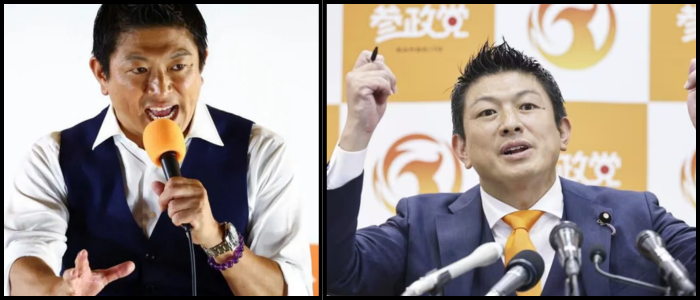From Fringe to Mainstream: Sanseito's Rapid Rise
Originally gaining attention during the COVID-19 pandemic through viral YouTube videos promoting conspiracy theories around vaccines and masks, Sanseito has since rebranded itself as a force for nationalism and anti-globalism. It ran on promises of tax cuts and increased child benefits, but its core appeal has stemmed from strong anti-immigration rhetoric.
The party has warned of a "silent invasion of foreigners" and criticised Japan's increasing openness to immigration. With tourism and foreign resident numbers at record highs, many voters frustrated by economic stagnation and social change have turned toward Sanseito's more radical platform.
Sanseito's leader, Sohei Kamiya, has described himself as inspired by former U.S. President Donald Trump's bold political style. His messages against the political elite and globalisation have struck a chord with younger conservatives and those dissatisfied with Japan's ruling Liberal Democratic Party (LDP).
A Challenge to the LDP and Japan's Political Centre
Sanseito's success highlights growing discontent with the ruling LDP and its leader, Prime Minister Shigeru Ishiba. Critics have argued Ishiba lacks the nationalist energy of former Prime Minister Shinzo Abe, and his moderate stance has driven many conservative voters toward more right-wing alternatives.
Political analysts suggest this election may mark a shift in Japan's political landscape, challenging the notion that Japan is immune to the far-right populist wave seen in other countries. Though Sanseito still lacks enough seats to submit budget bills and holds only three seats in the more powerful lower house, the momentum is undeniable.
Immigration Backlash and the Party's Future
Japan's record-high foreign resident population—3.8 million as of 2024—and booming tourism industry have sparked anxieties over crime, overcrowding, and cultural change. Sanseito has capitalised on these fears, portraying the presence of foreigners as a threat to Japan's identity.
Just before the election, the government tried to respond by forming a new committee to address immigration-related concerns. But critics say the move came too late to stem the party's growing popularity.
While Kamiya has walked back some of his more extreme statements after the election, Sanseito's platform remains firmly nationalist. He has set ambitious goals to win 50 to 60 seats in future elections, indicating that the party's influence in Japanese politics could continue to grow.
Politics

Far-Right 'Japanese First' Party Sanseito Gains Ground in Japan's Election

A once-fringe political party in Japan has surged into the spotlight following a surprising victory in the recent upper house election. The Sanseito party, founded in 2020, secured 14 seats—up from just one—by promoting a populist and nationalist "Japanese First" agenda that has resonated with a growing segment of conservative voters.















